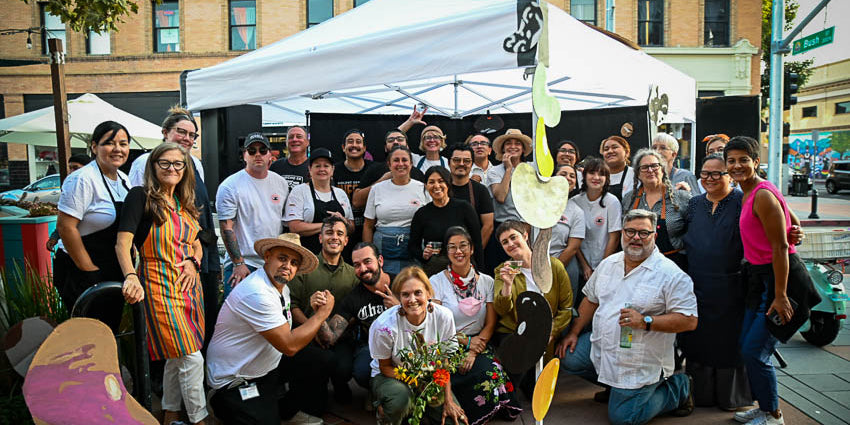

Desert Island Sampler
Free shipping on orders $50+
Six essential heirlooms that founder Steve Sando can't live without
Please don't ask me to tell you the name of my favorite bean. It changes daily! I love all the heirlooms we grow for different reasons. But if I were to be sent to a desert island, these are the six varieties I couldn't do without, even though I'd probably have a different list tomorrow. —Steve
ALUBIA BLANCA: Classic Alubia beans are one of our more requested items. You can use these small white European-style beans in all kinds of cooking, from Yankee baked beans to soups to Italian "beans on toast." They have a thin skin but still manage to hold their shape, making them ideal for salads.
BUCKEYE: A small, dense yet velvety bean that holds its shape and provides a rich bean broth. Easily one of the staff's favorite beans.
CLASSIC CRANBERRY: Cranberry beans only look like cranberries. And even then, I don't quite see it. Originally from South America, these beans have been bred around the world and have become Madeira, Borlotti, Tounges of Fire, Wren's Egg and many more. This is the classic from Colombia and are perfect for any recipe calling for a "cranberry" bean.
DOMINGO ROJO: A classic red bean, essential to dishes like New Orleans Red Beans & Rice, and equally important to many Caribbean cuisines. Domingo Rojo holds its shape when cooked, and the thick bean broth coats every rice grain or noodle with a luxurious sauce.
GARBANZO: A slightly nutty-flavored classic bean, essential for Middle Eastern, Mexican, and European cooking. New-crop harvest ensures quicker cooking and fresher flavor.
MIDNIGHT BLACK: Midnight is a true black turtle bean with a rich, traditional black bean flavor and texture. Use in any recipe calling for black or turtle beans or just enjoy on their own. These are incredibly fresh so little, if any, soaking is required.
Each gift box includes a cooking flyer with tips and delicious recipes from the Rancho Gordo kitchen.
Think outside the (gift) box and give beans. Everyone (including O, the Oprah Magazine) has been raving about Rancho Gordo beans, so this is a great gift option for cooks in the know. Included are six bags of the company's all-time favorite beans, including cooking instructions and tips. - C-NET Best Gift Baskets of 2024
"Without Sando's vision, many delicious bean varieties would have remained unknown and possibly become extinct."
Financial Times (FT Weekend)


